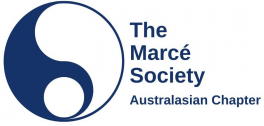A Systematic Survey Of The Psychosocial Characteristics Of Women Admitted To Masada Private Hospital Mother Baby Unit
*Jane Fisher, B Sc (Hons), Ph.D., MAPS
Lecturer, Key Centre for Women's Health in Society , University of Melbourne ,, 720 Swanston Street, Melbourne, Victoria 3053, Australia
Colin Feekery, MBBS, FRACP
Consultant Paediatrician, Royal Children's Hospital, Parkville, Victoria and Medical Director, Masada Private Hospital Mother Baby Unit, Balaclava Road, East St Kilda, Victoria 3183
Objective
The range of specialist services available to assist mothers and infants in the postpartum year has grown in recent years to include psychiatric units in general, obstetric and psychiatric hospitals; day stay and outpatient programs and residential parentcraft facilities. Most of these latter facilities have been funded by the state and run in the public sector. More recently, private hospital residential parentcraft facilities have been established. Masada Private Hospital opened a residential mother infant unit in April 1996. It provides brief admission, comprehensive assessment and carefully tailored psychologically informed interventions for mothers and babies in the first postpartum year. Most women are admitted because of infant feeding or settling difficulties. The psychological and sociodemographic characteristics of women admitted to both psychiatric and public parentcraft facilities have been examined in recently published systematic surveys. This paper presents the findings of a recent survey of the psychological and sociodemographic characteristics and health needs of women admitted with their infants to the Masada Private Hospital Mother Baby Unit (MBU) in southeastern suburban Melbourne.
Method
All the women admitted to the Masada Private Hospital MBU between June 1st and November 31st 1997 were invited to complete a comprehensive questionnaire anonymously. The questionnaire covered socioeconomic factors; past reproductive events; index pregnancy and delivery events; relevant personal and family history; infant health, temperament and development and emotional needs and experiences. Standardised self-report psychometric instruments assessing mood, personality factors and quality of relationships with partner, mother and friends were incorporated into the questionnaire.
Results
In all 108 (75%) of the 146 women to whom the questionnaire was distributed, completed it. It was found that these women, who were all of high socioeconomic status had a higher than average incidence of difficulties in conceiving; pregnancy illness; delivery and postpartum complications and breastfeeding difficulties. Their partners had professional and leisure commitments, which took them away from home for very prolonged periods. The quality of marital relationship and adequacy of practical support from fathers was compromised. A high proportion of the infants had significant temperamental difficulties. A majority of the participants were coping with distressing co-incidental adverse life events in addition to mothering new babies. There was a lower than expected incidence of personal history of psychiatric illness or sexual or physical abuse.
Conclusions
The findings of this survey provide a systematic account of the correlates of mild to moderate postpartum emotional distress and identify a number of potential risk factors, which warrant further detailed investigation.





